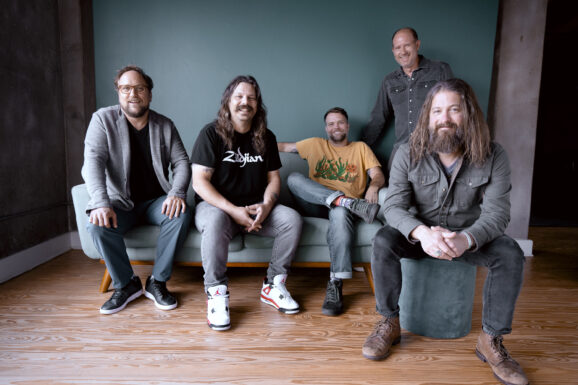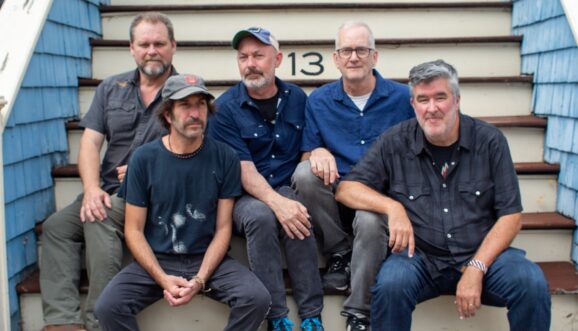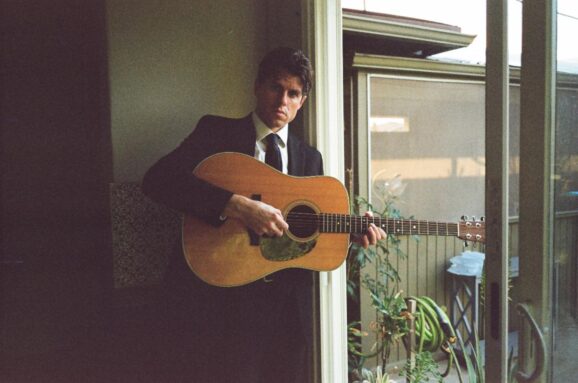We’ve been here before. The entirely acoustic Southeastern was a career turning record for Jason Isbell, one that defined and celebrated his sobriety and shed light on his marriage to Amanda Shires. Since then, Isbell, now deemed by many as the best songwriter of this generation, has packed houses with his electric band, the 400 Unit, and has since divorced Shires. No, this record is not a breakup record, although there are more songs on that subject than anything else. It’s somewhat elusive what it is about other than a close look at Isbell’s current state of mind.
When Springsteen delivered his spare Nebraska, it took people by surprise. As noted, we’ve been here before with Isbell, so the element of surprise is missing, as are his bandmates. Foxes in the Snow is a broad collection of songs played alone on his acoustic 1940 Martin antique guitar, seemingly without a central theme. Few artists can get away with such a simple approach, but Isbell has earned that status. The question then is whether there will be memorable songs like “Cover Me Up” or “Elephant” that define Southeastern. Only time will tell whether they are here.
“Bury Me” is a very somber way to begin the album, but in one way, he’s saying that he’s lived a fulfilling life and is okay with leaving whenever and wherever that is. “Ride to Robert’s” does reflect on his ex-wife’s departure, as he nods to the nostalgic memories of one of his favorite haunts, while poking some fun at Nashville’s ever booming tourist industry. “Eileen” is a potent song about the emotions of breakup, reaching its climax in the verse – “But then I found the letter she wrote against the wall behind the bed/It said ‘forever is a dead man’s joke.” The standout “Gravelweed” is about self-awareness, about blaming oneself as he opens with “I wish I could be angry.” On another level, it is the sequel to “If We Were Vampires.” “Don’t Be Tough” though is another candidate for one of his lasting songs, his message for containing one’s anger or emotions filled with great lines such as “Don’t be shitty to the waiter/He’s has a harder day than you” or “Don’t say love unless you mean it/Don’t say sorry unless you’re wrong.” These are the kinds of lines that stay with you.
“Open and Close” is one of the deeper ones. Set in a New York apartment, the protagonist is with a woman he barely knows while on the precipice of letting her out or taking the next step. He’s mad at everything and conflicted. You can read into “time to be brave” several ways. He sings “True Believer” with far more emotion than his other songs. He’s bitter, honest, broken, and yet stoic. It’s tempting to read the dissolution of marriage into it, but it could be any breakup. From the bitter to the sweet, “Wind Behind the Rain” is a superb love song with the cinching line: “If you leave me now, I’ll just come running after you/I’ll be the wind behind the rain.”
Isbell has endured many life lessons in the past two decades. He got fired from a band, conquered his demons, got married and became a father, and became an actor, all while his popularity skyrocketed, and, of course, the divorce happened. As a single man, he deserves time for self-reflection, which this is ultimately about. Like Southeastern, there are some keepers here. That’s for you to decide but my suggestions are “Don’t Be Tough,” “Crimson and Clay,” “Gravelweed,” and “Wind Behind the Rain.” Let the debates begin.








